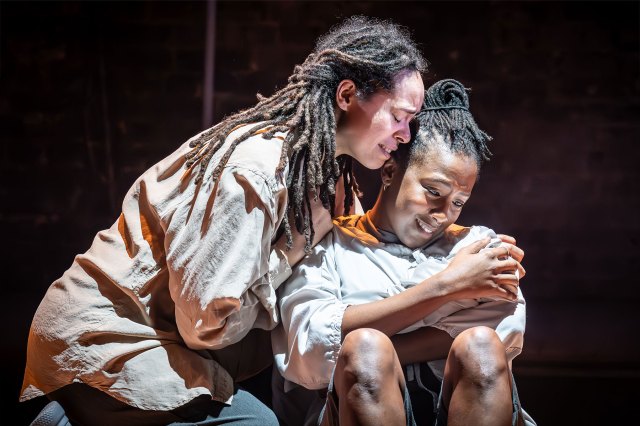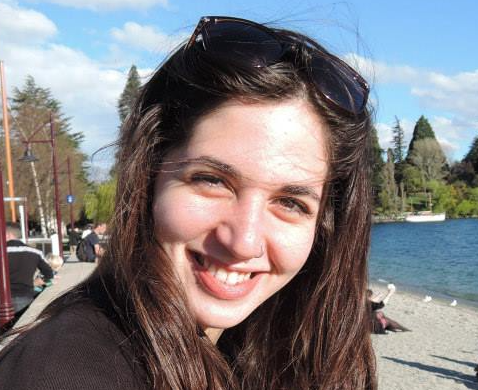
Standing at the Sky’s Edge writer Chris Bush has attempted to grapple with the behemoth question of the zeitgeist: “What is womanhood?” Unfortunately, she stumbles under the weight of it, and her answer, in the end, is simply and unsatisfactorily: “it’s hard to define.”
We begin at the end: Jo and Harry, once “unbearable in their happiness”, are now dividing CDs. Harry has decided to take the plunge and start to live as a woman, which prompts Jo to realise that they haven’t been happy together for a long time. So each goes their own way, on their own adventure.
While this is by no means autobiographical, Bush tells us, it is a deeply personal story. It is striking, then, that she is so much stingier with the character most resembling herself, giving all the personality, the quippy one-liners, the fun, to everyone but Harry.
Any moments of rage or bubbling hope assigned to her (Fizz Sinclair) are divvied out to the narrating chorus to express on her behalf while Harry remains stoic, if a little mournful; she appears simply as the archetypal trans woman on her hero’s journey, and not much else. Jo (Jade Anouka), on the other hand, and her new partner Gabby (Amanda Wilkin) are allowed a whole range of emotions and experiences: travelling, getting high, heave-sobbing, partying, meeting new people, feeling untethered, falling in love. And, the big decision, having a baby. But this last part, despite looming large in the storyline, doesn’t define their personalities.

Four- and five-part harmony songs with lyrics like “I would climb mountains for you” and the slightly more knowing “The world is f**ked, let me cling to you”, are performed by the all-female ensemble cast as they gather reassuringly around each other throughout. This attempt at portraying a nourishing, knowing sisterhood is admirable, but the results are saccharine, and any individuality from the supporting characters is lost in a mulch of earnestness.
The second half loses the plot, or rather it clings desperately to it, losing all subtlety of message: Robot Jo is now a futuristic incubator for her partner’s child, a silver orb in place of her stomach, while Harry has been found tangled in an oldy-worldy fishermen’s net. Half woman, half fish, she is slowly completing her transformation so she can look for her true home on land. These changes of scenery force some interesting production choices, which is always fun: a pool of water appears centre stage for Harry to climb dramatically out of; Jo first appears plugged in to tens of illuminated charging cables, and the chorus are now dressed in 18th century frills and smock shirts. It’s as though Bush and director Ann Yee don’t trust that we’ll get it: Jo feels her body is not her own, while Harry is trying to reclaim hers. But that was already apparent in the first half. No need to put everyone in frilly outfits and have them pretend to be Moby Dick fishermen.
In the end, they all live happily ever after. Some might consider a happy ending a gift when the news is so bleak right now. But it feels to me like a cop out, shrugging off any need for meaning and telling us nothing about the experience of womanhood, except it’s a gift, or something equally vague.


















